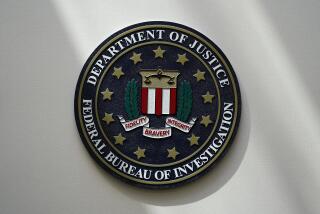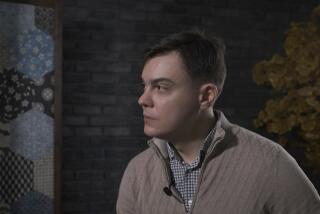New Questions on Yurchenko
- Share via
WASHINGTON — Vitaly Yurchenko’s alleged defection to the United States last July was followed by a chain of occurrences in the always murky world of intelligence and counterintelligence that some U.S. officials have tied to Yurchenko’s switching sides.
But only two developments--charges that a former CIA operative, Edward L. Howard, had been providing the Soviets with crucial information, and that the Soviets were using a potentially damaging chemical to keep track of Americans in Moscow--have been authoritatively linked to information given the United States by Yurchenko.
Yurchenko’s connection to other developments--including a rash of defections by West German intelligence officials--remains only speculative.
Yurchenko disappeared July 28 while on temporary assignment to the Soviet Embassy in Rome. He later turned up in the United States.
FBI counterintelligence agents were led to Howard by information Yurchenko provided. Howard managed to escape from his Santa Fe, N.M., home even as FBI agents had it under surveillance. He is believed to be in Europe.
Why could Yurchenko expose Howard, if the defector was still loyal to his homeland?
Sen. Malcolm Wallop (R-Wyo.), a member of the Senate Intelligence Committee who had voiced doubts about Yurchenko’s credibility to CIA officials, said Monday he thinks Howard could have been a “throwaway.” Yurchenko would help establish his credibility with U.S. debriefers by turning in an agent who had little left to give the Soviets, according to this theory.
It was also Yurchenko who told his American debriefers that the Soviets were using potentially hazardous “spy dust” to track the movement of U.S. diplomats in Moscow.
Other developments possibly related to Yurchenko’s defection include:
--In August, a high West German counterintelligence official, four employees of the Bonn government and an official of a prestigious West German think tank defected to East Germany. Some have speculated that they feared Yurchenko would expose them as spies.
--On Aug. 25, Martin Winkler, the No. 2 man in East Germany’s embassy in Argentina, defected to the West--possibly because he was a longtime West German agent who feared being exposed, according to sources in Bonn.
More to Read
Sign up for Essential California
The most important California stories and recommendations in your inbox every morning.
You may occasionally receive promotional content from the Los Angeles Times.













